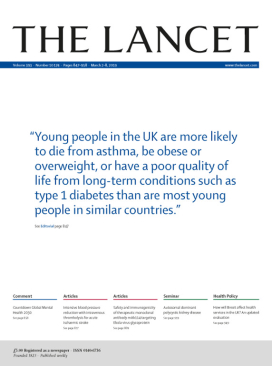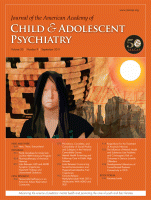
Antidepressants are a class of medications used to treat major depressive disorder, anxiety disorders, chronic pain, and addiction.

Paroxetine, sold under the brand names Paxil and Seroxat among others, is an antidepressant of the selective serotonin reuptake inhibitor (SSRI) class. It is used to treat major depressive disorder, obsessive-compulsive disorder, panic disorder, social anxiety disorder, post-traumatic stress disorder, generalized anxiety disorder, and premenstrual dysphoric disorder. It has also been used in the treatment of premature ejaculation and hot flashes due to menopause. It is taken orally.

Sertraline, sold under the brand name Zoloft among others, is an antidepressant of the selective serotonin reuptake inhibitor (SSRI) class. The efficacy of sertraline for depression is similar to that of other antidepressants, and the differences are mostly confined to side effects. Sertraline is better tolerated than the older tricyclic antidepressants, and it may work better than fluoxetine for some subtypes of depression. Sertraline is effective for panic disorder, social anxiety disorder, generalized anxiety disorder (GAD), and obsessive–compulsive disorder (OCD). However, for OCD, cognitive behavioral therapy, particularly in combination with sertraline, is a better treatment. Although approved for post-traumatic stress disorder (PTSD), sertraline leads to only modest improvement in this condition. Sertraline also alleviates the symptoms of premenstrual dysphoric disorder (PMDD) and can be used in sub-therapeutic doses or intermittently for its treatment.

The Lancet is a weekly peer-reviewed general medical journal and one of the oldest of its kind. It is also the world's highest-impact academic journal. It was founded in England in 1823.

Venlafaxine, sold under the brand name Effexor among others, is an antidepressant medication of the serotonin-norepinephrine reuptake inhibitor (SNRI) class. It is used to treat major depressive disorder, generalized anxiety disorder, panic disorder, and social anxiety disorder. Studies have shown that Venlafaxine improves quality of life. It may also be used for chronic pain. It is taken by mouth. It is also available as the salt venlafaxine besylate in an extended-release formulation.
In academic publishing, a retraction is a mechanism by which a published paper in an academic journal is flagged for being seriously flawed to the extent that their results and conclusions can no longer be relied upon. Retracted articles are not removed from the published literature but marked as retracted. In some cases it may be necessary to remove an article from publication, such as when the article is clearly defamatory, violates personal privacy, is the subject of a court order, or might pose a serious health risk to the general public.

Reboxetine, sold under the brand name Edronax among others, is a drug of the norepinephrine reuptake inhibitor (NRI) class, marketed as an antidepressant by Pfizer for use in the treatment of major depression, although it has also been used off-label for panic disorder and attention deficit hyperactivity disorder (ADHD). It is approved for use in many countries worldwide, but has not been approved for use in the United States. Although its effectiveness as an antidepressant has been challenged in multiple published reports, its popularity has continued to increase.

The American Journal of Psychiatry is a monthly peer-reviewed medical journal covering all aspects of psychiatry, and is the official journal of the American Psychiatric Association. The first volume was issued in 1844, at which time it was known as the American Journal of Insanity. The title changed to the current form with the July issue of 1921.
Leemon McHenry is a bioethicist and Emeritus Professor of Philosophy at California State University, Northridge, in the United States. He has taught philosophy at the University of Edinburgh, Old Dominion University, Davidson College, Central Michigan University, Wittenberg University and Loyola Marymount University, and has held visiting research positions at Johns Hopkins University, UCLA and at the Institute for Advanced Studies in the Humanities in the University of Edinburgh. His research interests center on medical ethics, metaphysics, and philosophy of science.
Martin Keller is an American psychiatrist. He is Professor Emeritus of Psychiatry and Human Behavior at Brown Medical School in Providence, Rhode Island.
Attention deficit hyperactivity disorder management options are evidence-based practices with established treatment efficacy for ADHD.
Harold Samuel Koplewicz is a nationally known child and adolescent psychiatrist. He is the founder and president of the nonprofit Child Mind Institute and editor-in-chief of the Journal of Child and Adolescent Psychopharmacology.

Depression is a mental disorder characterized by prolonged unhappiness or irritability, accompanied by a constellation of somatic and cognitive signs and symptoms such as fatigue, apathy, sleep problems, loss of appetite, loss of engagement. low self-regard/worthlessness, difficulty concentrating/indecisiveness, or recurrent thoughts of death or suicide. Depression in childhood and adolescence is similar to adult major depressive disorder, although young sufferers may exhibit increased irritability or behavioral dyscontrol instead of the more common sad, empty, or hopeless feelings seen with adults. Children who are under stress, experiencing loss, or have other underlying disorders are at a higher risk for depression. Childhood depression is often comorbid with mental disorders outside of other mood disorders; most commonly anxiety disorder and conduct disorder. Depression also tends to run in families. In a 2016 Cochrane review cognitive behavior therapy (CBT), third-wave CBT and interpersonal therapy demonstrated small positive benefits in the prevention of depression. Psychologists have developed different treatments to assist children and adolescents suffering from depression, though the legitimacy of the diagnosis of childhood depression as a psychiatric disorder, as well as the efficacy of various methods of assessment and treatment, remains controversial.

Selective serotonin reuptake inhibitors (SSRIs) are a class of drugs that are typically used as antidepressants in the treatment of major depressive disorder, anxiety disorders, and other psychological conditions.
The American Academy of Child and Adolescent Psychiatry (AACAP) is a 501(c)(3) non-profit professional association in the United States dedicated to facilitating psychiatric care for children and adolescents. The Academy is headquartered in Washington, D.C. Various levels of membership are available to physicians specialized in child psychiatry or pediatrics, as well as medical students interested in the field, in the United States and abroad.
The relationship between antidepressant use and suicide risk is a subject of medical research and has faced varying levels of debate. This problem was thought to be serious enough to warrant intervention by the U.S. Food and Drug Administration to label greater likelihood of suicide as a risk of using antidepressants. Some studies have shown that the use of certain antidepressants correlate with an increased risk of suicide in some patients relative to other antidepressants. However, these conclusions have faced considerable scrutiny and disagreement: A multinational European study indicated that antidepressants decrease risk of suicide at the population level, and other reviews of antidepressant use claim that there is not enough data to indicate antidepressant use increases risk of suicide.
Daniel A. Geller is an Australian American pediatrician and psychiatrist who specializes in the treatment of pediatric obsessive–compulsive disorder (OCD). Geller is triple board certified in Pediatrics, Psychiatry, and Child & Adolescent Psychiatry, and is director of the Pediatric OCD Program at Massachusetts General Hospital.

Study 329 was a clinical trial which was conducted in North America from 1994 to 1998 to study the efficacy of paroxetine, an SSRI anti-depressant, in treating 12- to 18-year-olds diagnosed with major depressive disorder. Led by Martin Keller, then professor of psychiatry at Brown University, and funded by the British pharmaceutical company SmithKline Beecham—known since 2000 as GlaxoSmithKline (GSK)—the study compared paroxetine with imipramine, a tricyclic antidepressant, and placebo. SmithKline Beecham had released paroxetine in 1991, marketing it as Paxil in North America and Seroxat in the UK. The drug attracted sales of $11.7 billion in the United States alone from 1997 to 2006, including $2.12 billion in 2002, the year before it lost its patent.

Conflicts of interest (COIs) often arise in academic publishing. Such conflicts may cause wrongdoing and make it more likely. Ethical standards in academic publishing exist to avoid and deal with conflicts of interest, and the field continues to develop new standards. Standards vary between journals and are unevenly applied. According to the International Committee of Medical Journal Editors, "[a]uthors have a responsibility to evaluate the integrity, history, practices and reputation of the journals to which they submit manuscripts".
Stan Kutcher is a Canadian Senator and Professor Emeritus of Psychiatry at Dalhousie University. He was appointed to the Senate of Canada on December 12, 2018.











